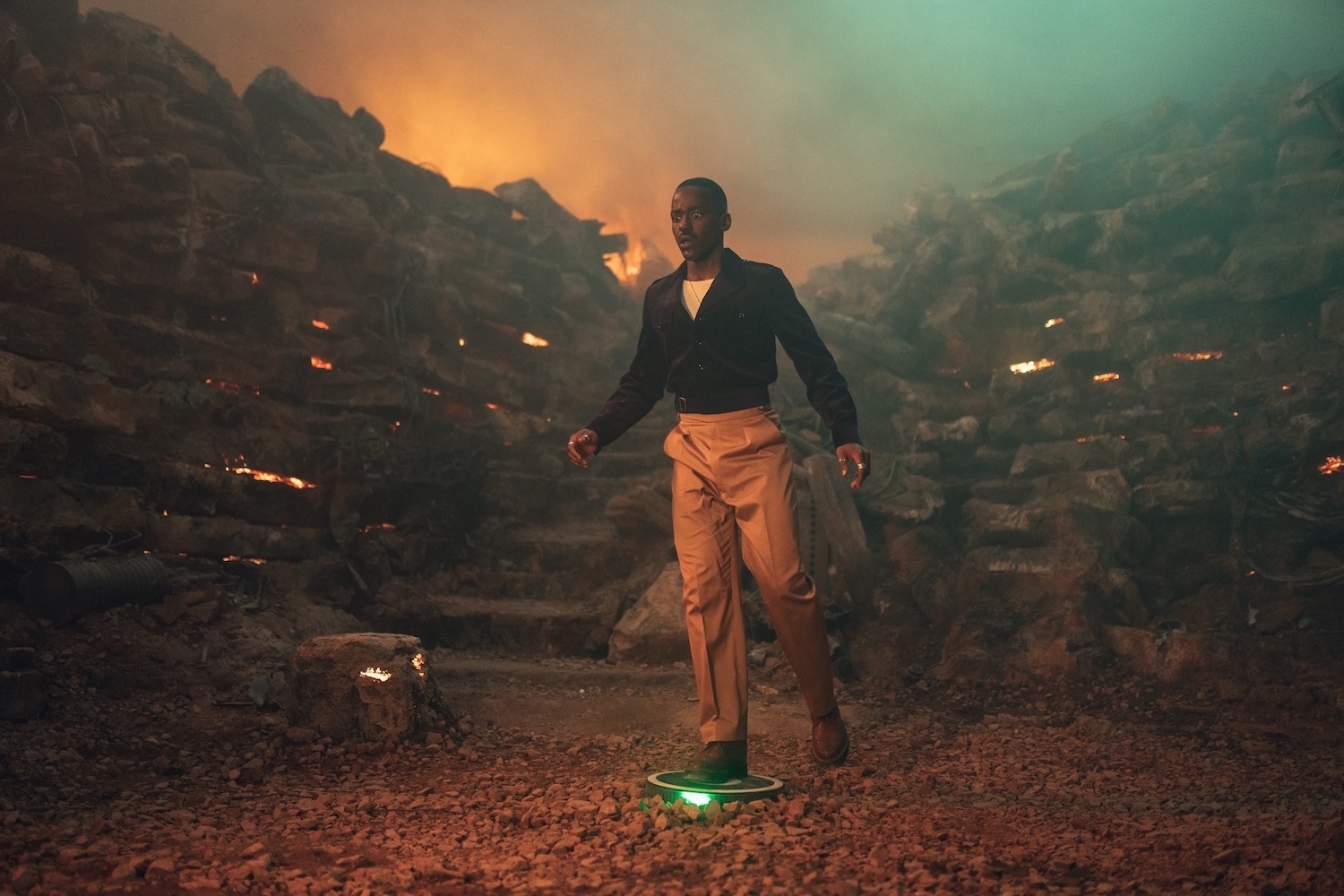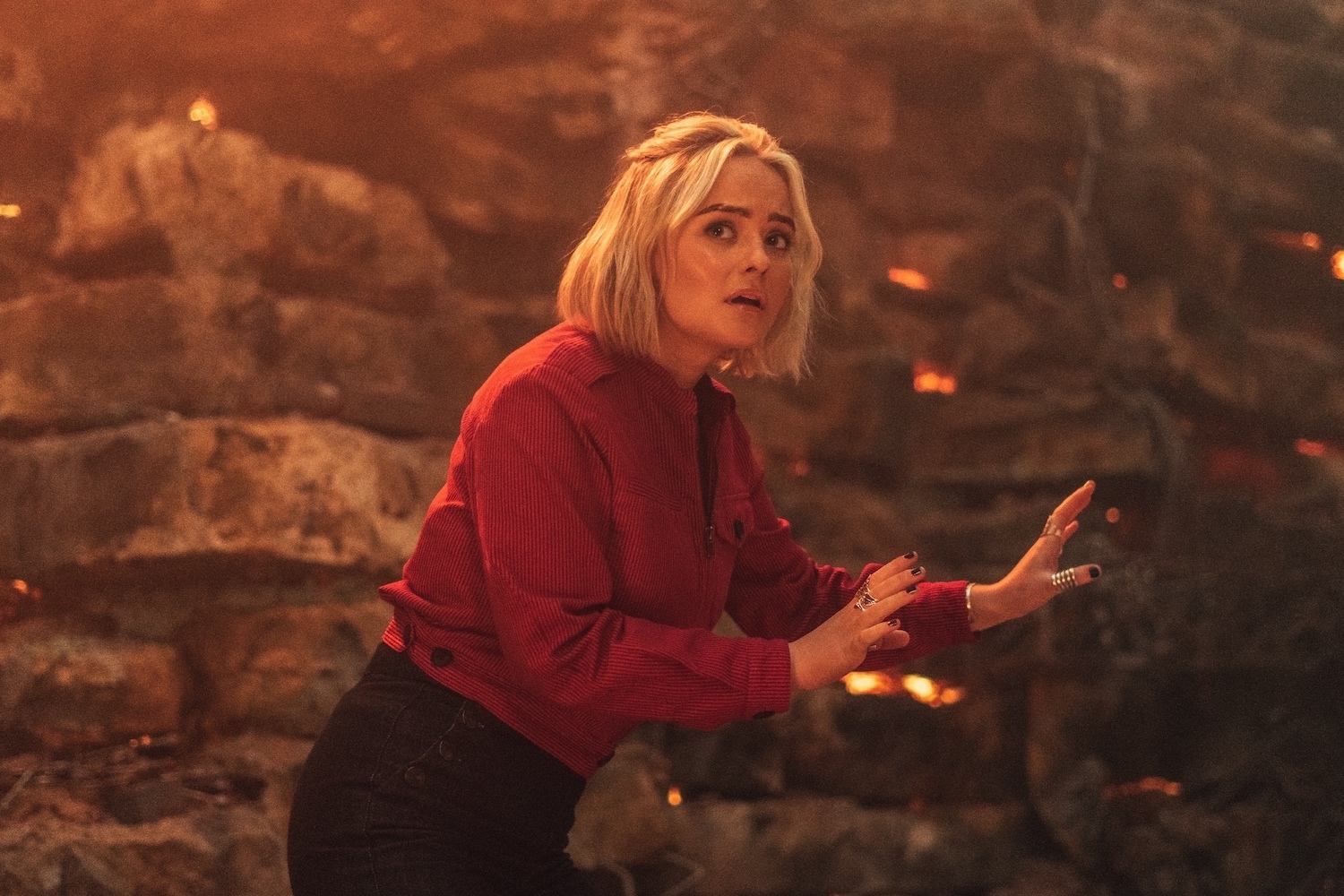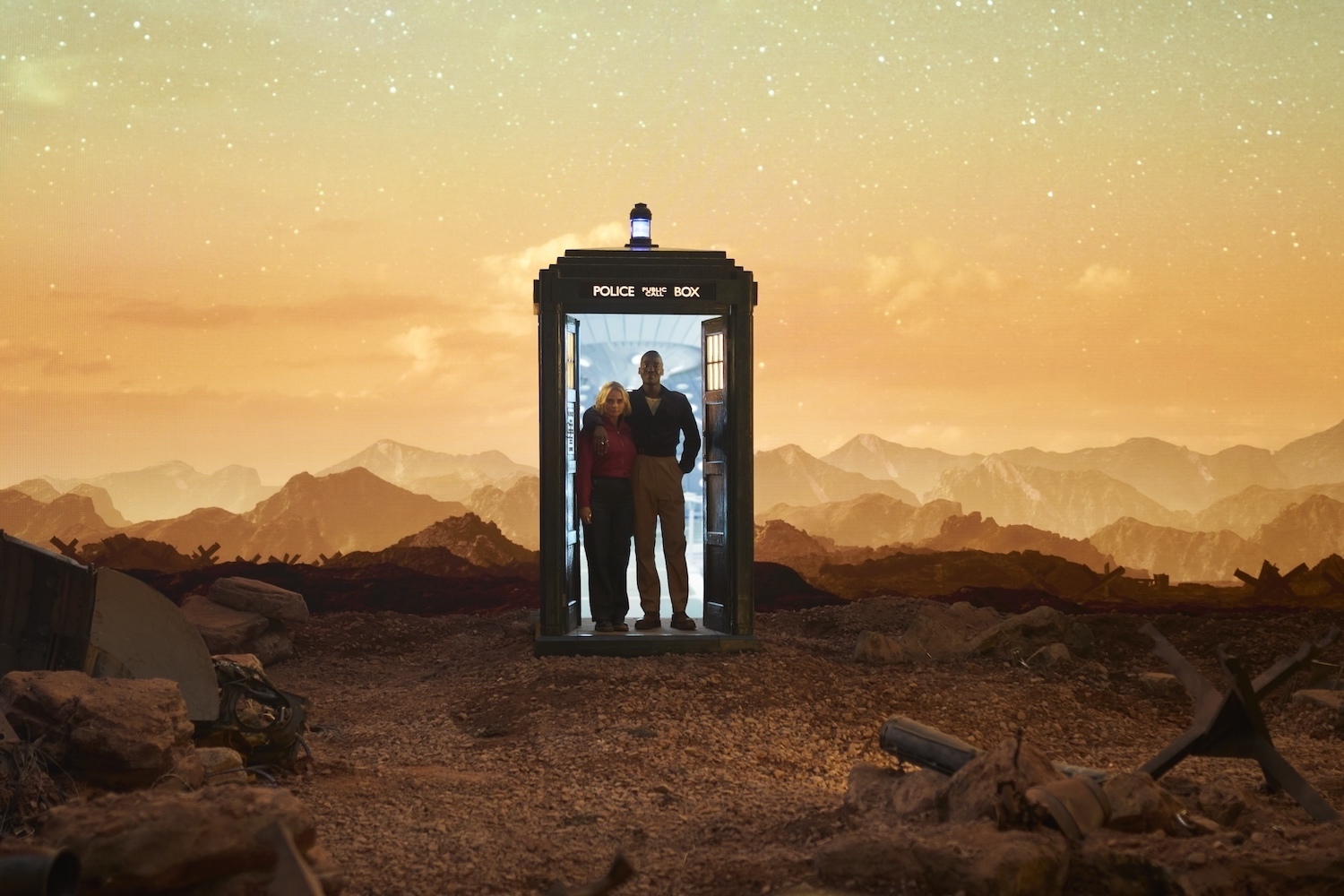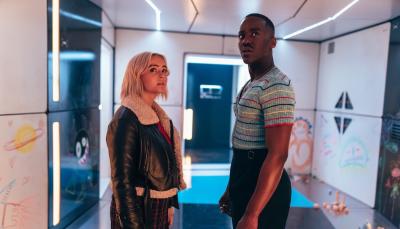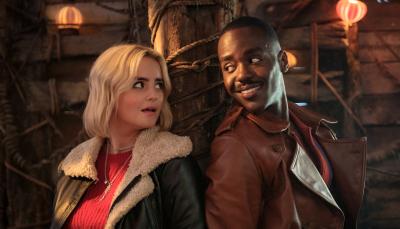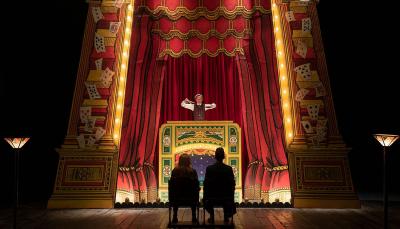'Doctor Who's War Story "Boom" Is an Ode to Things That Last
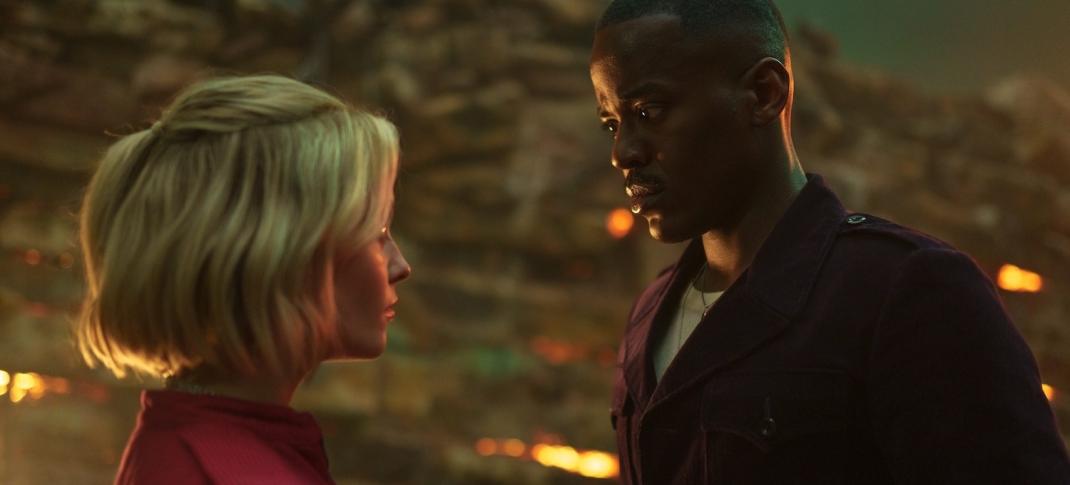
Ncuti Gatwa and Millie Gibson in "Boom"
(Photo: Disney+)
Doctor Who launched Fifteenth Doctor Ncuti Gatwa's first season in the TARDIS with a pair of episodes that represented much of what this show is supposed to be and do. One episode is set in the future, and the other looks back to the past. One is a campy romp, the other a lore-littered face-off with one of the franchise's most intriguing new villains in some time. But the one true constant in Doctor Who is change, so it probably shouldn't surprise anyone that the season's third episode turns everything on its head again.
Penned by former showrunner Steven Moffat, "Boom" is a war story, but perhaps not quite in the way most expected it to be. Although many of us (read: me) lodged our fair share of complaints against Moffat during his time helming the series, he's always been a cracking good writer responsible for crafting some of the best episodes of Doctor Who's modern era. While "Boom" doesn't necessarily reach the heights of, say, "The Empty Child" or "Blink," it's a compelling hour of television that features genuine, almost painful tension the show rarely gets to explore.
Set on a planet torn apart by conflict, the episode is deliberately limited in scope. The story is straightforward and save a scene or two, is set in a single, specific location. Upon arriving at Kastarion 3, the Doctor hears what sounds like someone in distress and rushes to help. On the way, he steps on a landmine, a glowing disc with green edges that will explode if he shifts his weight. The rest of the hour is spent trying to figure out how to prevent the landmine from exploding and killing the Doctor, Ruby, several new friends, and half the planet they're standing on.
Pretty straightforward, right? Not necessarily.
The choice to pin Fifteen in place means, for the most part, the episode is trapped there with him, making the hour thrillingly tense and claustrophobic throughout. The Doctor, after all, is a hero in constant motion, a creature who rarely sits still; he's running, pacing, talking, and babbling nonstop. It's a bold move to firmly tie this character to a specific physical spot, and the ways it forces Fifteen's entire demeanor and approach to problem-solving to change (the bomb can go off if his adrenaline spikes too quickly) are fascinating.
However, "Boom" is a dark hour, even for a Doctor Who war story. Multiple supporting characters die, a child is left orphaned, and what is essentially a vacuum-sealed, compressed human body is used as a little more than a paperweight. The threat of death feels all too real throughout as the glowing green lines continue to count down to an explosion that feels increasingly inevitable.
Yet, once again, the performances of Ncuti Gatwa and Millie Gibson are what give this hour its emotional center. On what is technically only their third adventure together, the Doctor and Ruby face down death side by side, and each refuses to give up on the other. The sequence in which Ruby and Fifteen must count off a musical beat together so that she can pass him a baton comprised of human remains to help keep his balance is riveting television, and his palpable grief at the thought of her death is exceptionally moving. (Even if we all knew there was no way Ruby was dying in her third episode.)
There are, of course, some hallmark Moffat twists and favorite tropes at work in this episode. The flirtation between Munday and her friend/possible crush Canterbury is written in the same "vaguely mean-spirited barbs masking a genuine interest" manner in which he approaches every other romance he's tried. There's a precocious child with a largely absentee parent whose presence is the key to saving the day, a companion death that doesn't stick, a lot of really aggressive robots, and an AI system that somehow incorporates human sentience into its after-death messaging services. (The last one feels an awful lot like The Library from Season 4's "Silence in the Library/Forest of the Dead" two-parter, also a pair of Moffat-penned installments.)
But Moffat's longstanding interest as a storyteller in death, the afterlife, and the things we leave behind is what makes this episode so striking. "Boom" is a story about death in the name of profit, featuring a company (which we're almost sure to see again) that fabricates literal endless wars against nothing to increase arms sales and then uses an algorithm to determine which lives are worth saving. Yet it's also a strangely hopeful tale, full of reminders that death is not the end of our stories and that what we leave behind matters. It is, after all, the approximate facsimile of John Francis Vater, who remembered enough of his love for his daughter to save them all.
"Death is what defines us," the Doctor tells Ruby before he waves farewell to Vater's sentient hologram, who seems to have decided to stay on Kastarion-3 alongside the daughter. Fifteen then makes an offhand reference to Phillip Larkin's "An Arundel Tomb," with its banger of a final line ("What will survive of us is love") that goes against virtually everything else the gloomy poet ever wrote. But perhaps that is the only hope one can take from stories like this: that we're never as alone as it sometimes seems.
But despite this episode's fairly heartfelt ruminations on faith and loss, the thing that will most likely leave Whovians everywhere buzzing is its introduction of actress Varada Sethu (Andor), who plays Anglican soldier Mundy Flynn and who was already announced as a companion for Gatwa's second season in the TARDIS. The show doesn't make a big deal over her arrival, and if you didn't check the credits at the end of the episode, you may not have realized her identity. (Those military fatigues are truly not flattering on anyone.) But it certainly does put the Doctor's promise to check back in on her in a whole new light.
However, just because Sethu plays Mundy in this episode doesn't necessarily mean we'll see that specific character next season. (Jenna Coleman played multiple variations of companion Clara Oswald during Moffat's tenure as showrunner before settling on her final version.) But the prospect of seeing this character again — whose faith has been so shaken by the events of this episode and who likely needs a reminder of the wonder the universe can contain — is admittedly fascinating.
As for our current companion, "Boom" once again underlines that there's something not quite right about Ruby. The ambulance AI shorts out while trying to identify her next of kin, and it suddenly begins to snow — on a planet where snow shouldn't be possible. We don't get the literal choirs of Christmas carols, but it's still evident whatever's going on with her backstory is the new Bad Wolf. Luckily, next week's episode looks like it involves Ruby on her own, which means this particular subplot will get more focus.
Doctor Who Season 14 streams new episodes on Friday evenings on Disney+ in the U.S. and midnight on Saturday mornings in the U.K.

